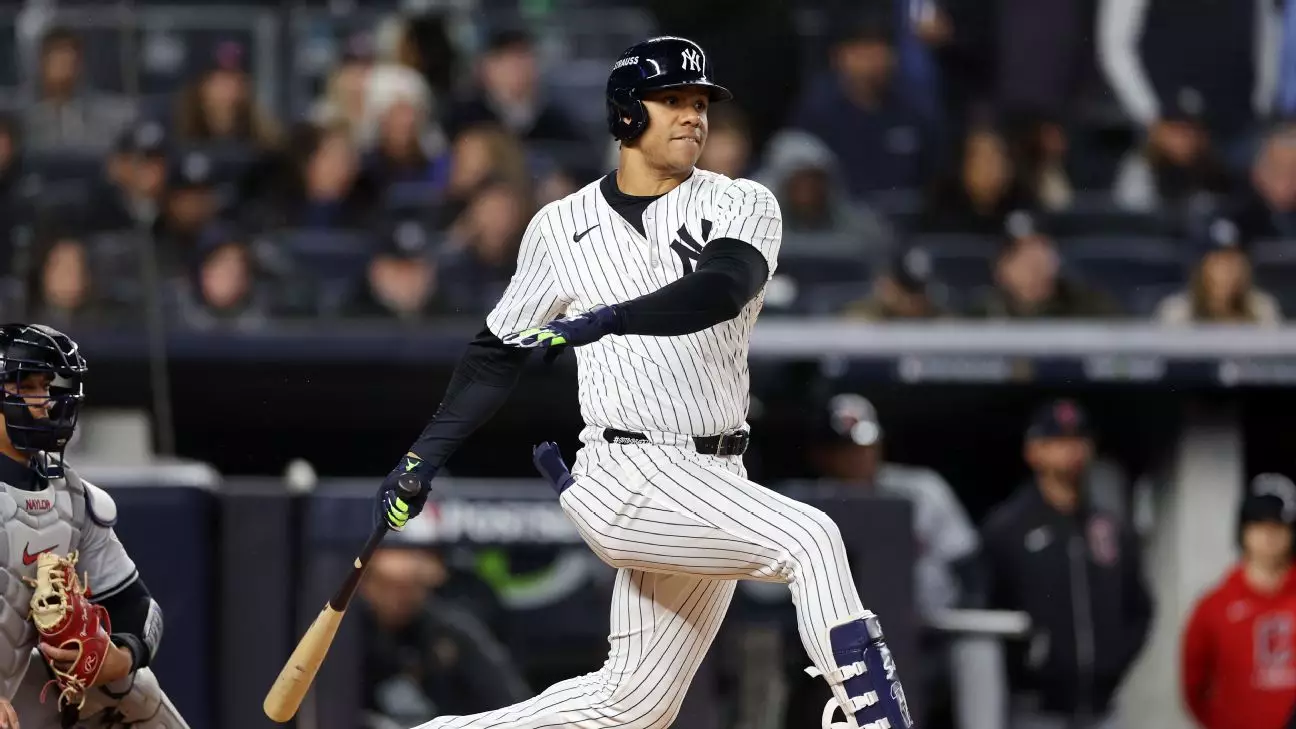Juan Soto’s impending free agency has created a significant buzz in Major League Baseball (MLB), a testament to his remarkable talent and performance. As reported, Soto’s agent, Scott Boras, emphasized the need for a meticulous approach as they navigate the multitude of offers from potential suitors. Soto’s decision to take his time signals a strategic move that many free agents often overlook; the importance of a comprehensive understanding of the competition, team philosophies, and long-term viability comes first.
Unlike past free agent standoffs, Soto’s situation is unique, primarily due to the sheer volume of interest he has attracted. With multiple teams eager to solidify their rosters with a player of Soto’s caliber, it becomes imperative for him to be discerning. His preference for personal meetings with ownership and key personnel demonstrates not just his ambition but also a desire for a collaborative environment where he can thrive.
The complexity of this free agency extends beyond mere financial considerations. For Soto, who delivered an impressive performance for the New York Yankees, hitting 41 home runs and scoring 128 runs, the choice of franchise will also hinge on the ownership’s commitment to building a competitive team capable of contending year after year. Boras pointedly notes that Soto is interested in “ownership that’s going to support their winning aspirations.” This aspect likely narrows down the potential candidates, as not every team can guarantee a robust, competitive roster.
Moreover, despite having played for a Yankees team that reached the World Series, that familiarity does not necessarily confer an advantage when it comes to securing his commitment. The pressure to perform at the highest level is consistently present in large-market franchises like New York but so is the scrutiny that comes with it. For teams like the San Francisco Giants and Toronto Blue Jays, the stakes are equally high, and thus they too must present compelling arguments to Soto about their future.
As negotiations and discussions unfold, Soto’s contractual value will likely position him amongst the top earners in MLB history. Speculations suggest that his eventual deal might be second only to Shohei Ohtani’s extravagant $700 million contract, but Boras is careful to maintain that comparing the two players isn’t practical. Each athlete has their own trajectory and circumstances that define their market worth.
What sets Soto apart from Ohtani, according to Boras, is age. Being just 26, Soto presents teams with a window of opportunity that few free agents can offer. While Ohtani also commands a significant following and attention due to his two-way capabilities, Soto’s relatively younger age could translate into a longer productive career, making him an enticing investment for any franchise.
Another salient point raised during this discussion pertains to the competitive balance tax and how it might affect team willingness to pursue high-profile talent like Soto. Boras confidently argues that such financial constraints are secondary when considering the monumental potential returns in investments when acquiring elite players. For franchises, the ability to enhance team performance through a player like Soto can lead to increased revenues that significantly outweigh tax implications.
This mindset positions Soto not just as a player but as a strategic asset that can reshape the fortunes of any franchise he joins. His playoff experience and performance across three teams bolster his marketability. Teams looking for immediate impact, especially playoff-contending teams, should recognize Soto as a formidable acquisition.
What remains clear is that Soto remains firmly in the driver’s seat as he evaluates his options. With Boras at the helm, they are beginning a process that promises to be complex and potentially prolonged. It’s not just about finding the right deal; it underscores who the team will be in the years to come and how Soto fits into that vision.
As the landscape of MLB continues to evolve, all eyes will be on Soto as he navigates this critical juncture in his professional career. Whether he remains with the Yankees or opts for greener pastures, the choice he makes will resonate throughout the league, shaping the future of franchises and altering competitive dynamics for years to come. The match between ambition, personal aspirations, and franchise philosophies will set the stage for one of the most talked-about free agency periods in MLB history.

